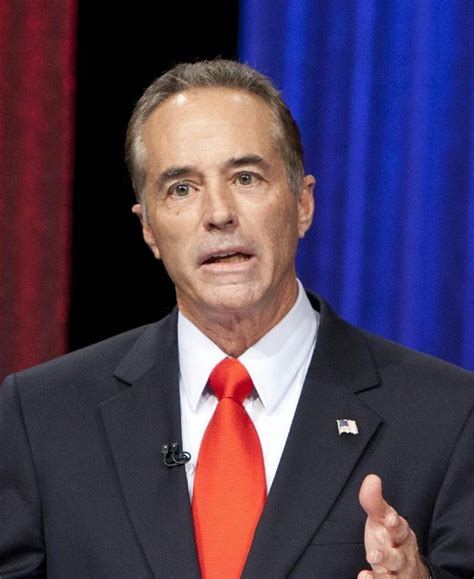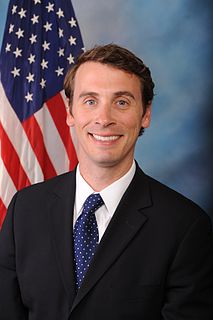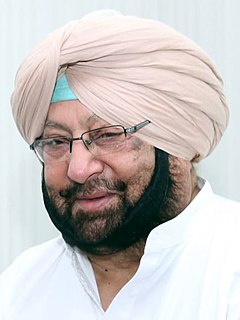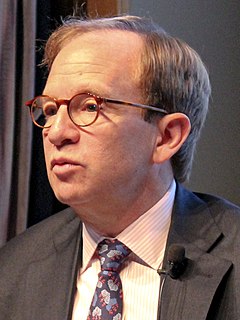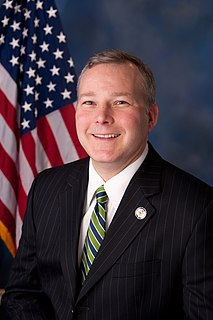Top 1180 Sector Quotes & Sayings - Page 17
Explore popular Sector quotes.
Last updated on April 22, 2025.
Energy Engineering started first in IIT Kharagpur in 1983 and mine was the third batch. It was definitely not a popular course. It was basically an amalgamation of nuclear, mechanical, chemical engineering, etc. But I don't think it was a big factor because if we look, most of them joined the IT sectors and not the energy sector.
This is one of the ways fiction is more liberating than nonfiction - I don't have to be so concerned with fact. I had the paradigm of certain people in my head who became my characters, but I never considered these people to be from a "certain sector of society," unless we agree that we're all from certain sectors of society.
Indeed the three policy pillars of the neoliberal age-privatization of the public sphere, deregulation of the corporate sector, and the lowering of income and corporate taxes, paid for with cuts to public spending-are each incompatible with many of the actions we must take to bring our emissions to safe levels.
I'm one of those people who believes that part of the greatness of the United States is our private sector. It's what we do as private citizens for ourselves and our companies. And our economy is essentially the wonder of the world because, in fact, it's produced so much for us over the years. That's not government that does that.
I think the Tea Party movement is great. I think anybody who has been frustrated over the last few years with the Republicans and Democrats, when they were trying to grow government and have spending and we weren't focusing on creating jobs and get our private sector growing again, I think that's when people started to wake up.
These four policy prescriptions - strengthening educational opportunities, revamping immigration rules for highly skilled workers, increasing federal funding for basic scientific research, and providing incentives for private-sector R&D - should in my view be top priorities as Congress and the Administration consider how to maintain the nation's leadership in science, technology, and innovation.
Things are going well in Germany because the economy is booming and as an export-driven nation, we are profiting from the fact that we have an excellent, high-performing SME sector. But if we want things to continue to go well into the future, then we have to break up the antiquated structures in some areas and really modernize.
The real development I've seen of people in organizations, especially in big ones, comes from their being volunteers in a nonprofit organization - where you have responsibility, you see results, and you quickly learn what your values are. There is no better way to understand your strengths and discover where you belong than to volunteer in a nonprofit. That is probably the great opportunity for the social sector - and especially in its relationship to business.
Don't spend more than you take in. Control your debt. Empower the private sector. We have 50 states out there that are laboratories of democracy. Why are we not empowering the states to find solutions to our problems, particularly health care, as opposed to looking to a one-size-fits-all solution from Washington, D.C.? That puzzles even me.
In human rights theory it is very important that governments still have the primary responsibility for the standards and provision of such services even if they no longer deliver them. They must insist that the private sector delivers without discrimination. So governments still have responsibility, including the need to influence business.
To enhance the defense of the other agencies of government, including our law enforcement agency - it's so important. They're doing such a great job, by the way. We will put together a team of our best military, civilian, and private sector cybersecurity experts to comprehensively review all of our cybersecurity systems and technologies.
Kosovo is an agricultural economy particularly. It also has a couple of good power stations that exported power, and the big cooperative which they had there in the mining field is no longer functioning. So there is no immediate employment available for people in the industrial sector. All that needs to be going. But you will remember that it is part of Yugoslavia, and much of its trade and its dependence was on Serbia and Montenegro.
The shipping industry plays a fundamental role in boosting global trade and prosperity. Maritime leaders have rightly recognised the need to invest in more energy-efficient vessels and to apply measures like slow-steaming. But to ensure a level playing field, collective action is urgently needed across the sector.
It is time for corporate America to become 'the third pillar' of social change in our society, complementing the first two pillars of government and philanthropy. We need the entire private sector to begin committing itself not just to making profits, but to fulfilling higher and larger purposes by contributing to building a better world.
Energy legislation in Congress and the focus on energy legislation is first and foremost about creating good jobs. In Florida, where solar and biofuel and wind and so many other areas are important and so many in the private sector continues to pursue these, we need policies that will encourage that.
We've discussed the public sector union people. We are messing with their bread and butter. They have their hands in the treasuries of all states in which they operate and the US Treasury. They have their hands there. That's how they live. Now, we're broke and the states are broke for a multitude of reasons. What they're being paid is among them.
The street is as diverse as any other sector, but in peoples' mind it gets appropriated as a black man who's tough. Trying to make it through by staying hard and phallocentric. To me, that is just an impoverished conception of what it is to be a black male. It doesn't do justice to my grandfather, my father, my brother - or just the black men I grew up with.
The problem with the finance sector is not that it has crashed (though that has done enormous damage around the world) but the damage that it did even in its pomp. It is for that reason that we must not go back to business as usual. Most of all it is imperative we reduce the dominance of finance. And that means economically, ideologically, and in terms of political voice.
The similarity is that concentration of capital influences virtually everything that goes on. It influences the way the media functions, it very powerfully influences how the government works and it of course influences corporate sector elements, like say how Google or Amazon present materials that reach the public.
China reformed its state sector before, in the late 1990s. Tens of millions were laid off at the time. That was scary and we had warnings of social unrest. But it did not happen. Instead, there was a restructuring in our economic system. I am not sure if China will follow a Western playbook in this respect.
It may have hastened the move of the former Minority Leader Trent Lott, to the private sector because there was such an outpouring of bitter criticism...The result, if this is successful, will not be much different from what Sen. Lott and others were trying to enact back then...It may be that we are all just older and wiser.
The power of the individual, market forces, and the private sector permeate our lives. With that power comes responsibility to address huge challenges. Climate change cannot be solved by governments alone. Xenophobia, hatred, and intolerance - more business leaders have to play a role in trying to be positive leaders, civic leaders.
Silicon Valley companies need to be asked to bring the best and brightest, the most recent technology to the table. I was asked as a CEO. I complied happily. And they will as well. But they have not been asked. That's why it cost billions of dollars to build an [Barack] Obama website that failed because the private sector wasn't asked.
It is no exaggeration to say that since the 1980s, much of the global financial sector has become criminalised, creating an industry culture that tolerates or even encourages systematic fraud. The behaviour that caused the mortgage bubble and financial crisis of 2008 was a natural outcome and continuation of this pattern, rather than some kind of economic accident.
For some people, work is the only safe haven from abuse. So all employers in businesses big and small, whether in the public or private sector, should be encouraged to create safe spaces at work where staff suffering domestic abuse can talk to an appropriately qualified person who can provide advice and offer support.
While I am talking about private sector job creation, the cap-and-trade energy tax, Speaker Pelosi's health-care bill and card-check legislation, Washington Democrats are defending groups like ACORN. They are on the wrong side of the issues and know their views are wrong for Arkansas, so they attack me.
I think, you know, what we've had for many years is a federal government that's not particularly concerned with the structure of the economy at all, just looking at the basic rules. I think we're going to see a different approach under Donald Trump with more kind of specific concern for the health of the manufacturing sector. I'm not necessarily sure that's a bad thing.
While the Tan Yan Kee foundation believes that it is merely scratching the surface relative to the gargantuan problems in the education sector, it envisions that one day it will be able to train more teachers and provide much-needed facilities that will transform schools into more conducive learning environments.
I spent ten years in the private sector, actually learning how business works. I'm the governor of Ohio, and I inherited a state that was on the brink of dying. And we turned it all around with jobs and balanced budgets and rising credit and tax cuts, and the state is unified, and people have hope again in Ohio.
Most companies aim to get bigger. But beyond a certain point, bigness becomes synonymous with badness. Think of Big Pharma, Big Auto, Big Oil. Worse, if you are regularly described as one of the Big Four, Five, or Six in any business sector, you are probably already in the sights of regulators and lawmakers.
Canadians know that the promise of a recession didn't happen because of anything we did here. If you look at all the causes of the recession, problems in mortgage markets, the problems in the banking sector, the problems in government finance in countries like Greece, none of those problems were in present Canada.
In order for our country and economy to get on the right track again, we need a leader who understands how the real economy works and has the vision to fundamentally change Washington. That leader is Mitt Romney. No other candidate in the field possesses his lifetime of success in both the private sector and as a governor.
When it comes to cyber warfare, we have more to lose than any other nation on earth. The technical sector is the backbone of the American economy, and if we start engaging in these kind of behaviors, in these kind of attacks, we're setting a standard, we're creating a new international norm of behavior that says this is what nations do. This is what developed nations do.







